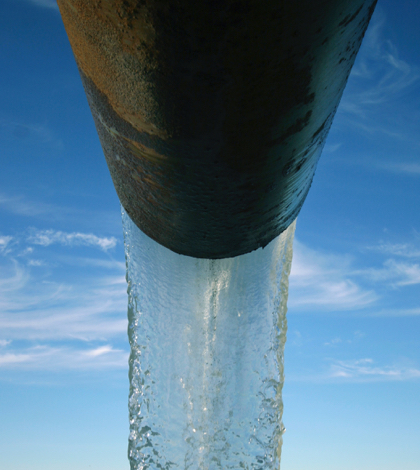Poseidon Water, owner of the Claude “Bud” Lewis Carlsbad Desalination Plant, has received an updated permit from the San Diego Regional Water Quality Control Board (SDRWQCB) governing the desalination plant’s discharges into the Pacific Ocean. Additionally, the permit includes structural and operational changes to provide greater protection for marine life and water quality.
“Desalinated water, as regulated by the permit for Poseidon, is an important component of our overall water supply portfolio,” said San Diego Water Board Chair Henry Abarbanel. In approving the permit, the Board balanced the environmental impacts and costs of source water intake and brine disposal for the next several decades with the many beneficial uses of the Pacific Ocean and Aqua Hedionda Lagoon.”
The Board’s action sanctions Poseidon’s construction of a stand-alone pumping station to draw seawater and build a new intake structure with smaller screens to reduce the number of fish sucked into the plant. But the permit also sets more stringent brine discharge guidelines to minimize the toxic impact on bottom-dwelling marine life. Additionally, Poseidon will must create 68.3 acres of wetlands in south San Diego Bay to offset potential harm to the marine life.
The Carlsbad plant is located 30 miles north of San Diego on the shores of the Agua Hedionda Lagoon. It is the largest and most technologically advanced seawater desalination project in the Western Hemisphere and relies on reverse osmosis, a filtering process that separates salt from seawater and eliminates impurities such as bacteria and viruses.
The plant’s process relies on some 100 million gallons per day of ocean water from the adjacent lagoon entering the plant through a 72-inch pipe. That water cycles through a multi-layer tank that uses sand, gravel and anthracite to remove algae and other large impurities. The reverse osmosis cycle removes the salt. When filtering is complete, the potable water is disinfected with chlorine and pumped to retailers throughout the county. Poseidon sells the desalinated water to the San Diego County Water Authority, which supplies 10 percent of the county’s drinkable water. The brine that remains after the desalination process is diluted with seawater and returned to the ocean.
Although the Carlsbad plant is one of 12 existing desalination plants in California, ocean filtration systems operate in more than 120 countries worldwide. They are considered a vital water source alternative in many regions, particularly the Mediterranean, the Caribbean and the Middle East, especially Israel. The company contracted by Poseidon to operate the Carlsbad plant is the Israel-based Desalination Enterprises. However, California continues to rely more heavily on conservation, recycling, stormwater capture and groundwater recharge in managing to provide for its water needs.
The updates in Poseidon’s new permit and updated structures are expected to increase the facility’s drinking water production from 54 to 60 million gallons per day. This reflects a significant boost for the region’s arid climate, frequent droughts and continual building. The renewed permit supports the use of ocean water as a reliable supplement to traditional water supplies. The new permit also features a number of environmental protections adopted by the State Water Board in its Desalination Amendment in May 2015. To review the 2015 Amendment, go to: https://www.waterboards.ca.gov/press_room/press_releases/2015/pr050515_desal.pdf.
 California Water News Daily Your Source For Water News in California
California Water News Daily Your Source For Water News in California


